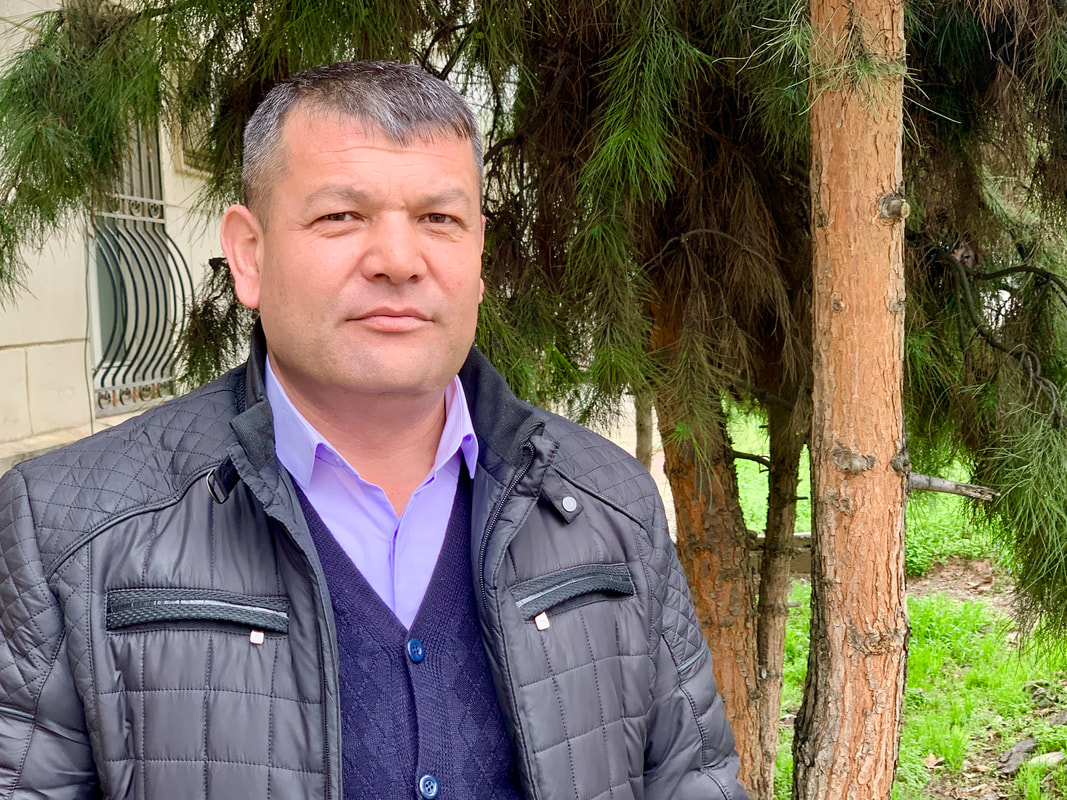|
Many lawyers are afraid to take the cases of arrested bloggers and activists in Uzbekistan, but not Umidbek Davlatov. "I'm not intimidated," he told me. He said the only time he felt really threatened was when he handled the case an American citizen who was charged with terrorism. "Law enforcement tried to intimidate me. They took me into a separate room and threatened me." Afterwards, Davlatov revealed in a media interview what had happened. Davlatov got his client's charges reduced to a $50 fine and he was released.
He's hoping he can do something similar this week for his current client, Uzbekistan blogger Otabek Sattoriy, who is currently serving a six-and-half-year prison sentence on convictions of defamation and extortion. Davlatov says the case against his client was manufactured in retaliation for Sattoriy's aggressive reporting about corruption at the state-run gas company and his repeated criticism of local officials near Termez, on the border of Uzbekistan and Afghanistan. On March 30, Sattoriy's case is scheduled to appear before the three judge Supreme Court in Tashkent. The crimes alleged against Sattoriy seem small and hardly warranting such a long prison sentence. In December 2020, Sattoriy was filming a farmers' market when guards scuffled with him and broke his phone. Apparently he demanded his phone, valued at $436, be replaced. After he received a new phone he was charged with extortion. Additional charges of extortion and defamation were added when other people stepped forward claiming Sattoriy tried to blackmail them, too, unless they paid him. One of the charges involved Sattoriy asking that his parents be compensated after the government allowed a construction company to demolish their home to make way for an apartment building, a common problem in Uzbekistan. "All these arrests are due to his journalist activities," Davlatov insisted. "They are trying to stop too many journalists." He named four other bloggers who were detained by the government last week. Bloggers in this country are not considered or treated like journalists. They are not licensed or registered like official journalists. And often they take money to write about problems. "It's just a scheme to make money. It's a business," I heard one journalist and after another say. Many journalists here disdain bloggers, and nearly every journalist I have interviewed in this country believes Sattoriy is not innocent. "We investigated the Ottabek Sattoriy case," Abdukadirov Dilshod, editor in chief at Kun.uz, told me. Kun.uz is one of the more popular independent news sites in Tashkent and the outlet has faced its own battles with the government. In 2018, the government blocked their site for a week and fined them for writing about religious material without having the government's approval. But Kun.uz is not sympathetic to the plight of Sattoriy. "Sattoriy is guilty of violating the law," Dilshod said. "This is not a freedom of speech case and we are not taking his side." I heard similar accusations from other editors in Tashkent. Even Davlatov isn't crazy about the common practices of bloggers. "Bloggers will say anything. Sometimes they are not ethical. They don’t know ethics or the ethics of journalism. They made this a business and are not objective. They want to become Internet stars." Davlatov is a blogger himself. He shows me his Youtube channel. "I believe in journalism and in fighting corruption," he says. "If I know someone is innocent then I invite them to my own channel to be interviewed." Perhaps Davlatov will have a chance to invite his client Sattoriy after the Supreme Court hearing next week. Comments are closed.
|
Fulbright in Central AsiaFrom March, 2022 to January of 2023, I was a Fulbright Scholar with the U.S. State Department in post-Soviet Central Asia. My previous Fulbright was in Ukraine. For the past six years, I have reported on journalists from post-Soviet countries who have experienced retaliation for reporting the truth. Archives
January 2023
|


 RSS Feed
RSS Feed
